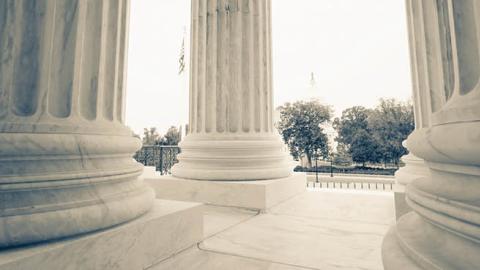Pirates have become cultural icons today thanks to Walt Disney’s widely successful “Pirates of the Caribbean” movie franchise. But real pirates are not so honorable, nor do they engage in delightful antics like Captain Jack Sparrow. They are scoundrels who steal goods created by the productive labors of innovators and businesspersons who are driving the global innovation economy.
What happens when victims of pirates are made victims by the very laws that are supposed to protect them? It might be inconceivable when talking about classic piracy on the high seas, where pirates exploit the lack of enforcement of the law of nations, but this is exactly what has happened today when it comes to piracy of inventions under the patent laws today.
The patent laws have long protected U.S. innovators, securing to them the fruits of their inventive labors. The patent system gave us the great American innovators who revolutionized our country, such as Thomas Edison, Nikola Tesla, Alexander Graham Bell, the Wright brothers and countless others. The result was a growing innovation economy and flourishing society in the United States.
Today, the patent laws have been turned on their head. Instead of offering the promise of reliable and effective property rights in new inventions, the laws instead promote a practice now known as “ efficient infringement .” Everyone else would call this piracy. It is the deliberate infringement of the work of inventors and small companies by large companies who exploit weakened patent rights and administrative processes that make it cheaper to infringe than to respect these property rights.
One reason this is happening is the Patent Trial and Appeal Board, an administrative tribunal created by Congress in 2011. The PTAB was supposed to quickly and cheaply cancel patents that had been mistakenly issued by the U.S. Patent & Trademark Office. Instead, the PTAB quickly became a bureaucratic tribunal that was stacked against patent owners. Inventors who successfully defended their patents in federal court suddenly found themselves defending the same patents at the PTAB — which had lower standards for invalidating patents than in court, stacked panels of administrative judges and extremely high “ kill rates ” for patents. One former federal judge labeled PTAB hearings as “death squads” for patents, a label embraced by the first chief judge of the PTAB.
Even when patents are not invalidated through willy-nilly processes, the PTAB makes it much harder to hold large companies accountable for deliberate patent infringement. One prominent example is Josh Malone, an individual inventor and American success story with his patented Bunch O’ Ballons product. He spent more than $17 million in defending his patents at the PTAB and dealing with resulting delays in court in seeking justice for deliberate infringement by Telebrands, the “As Seen on TV” company. Telebrands eventually settled after years of PTAB proceedings and trial maneuvering, but very few people have the resources or tenacity to fight as long and as hard as Mr. Malone.
Another example is EagleView, another American success story, which had its inventions stolen by a larger company after merger negotiations fell through. The larger company pirated its tech, and EagleView sued. The company filed 13 petitions at the PTAB against numerous patents owned by EagleView, duplicating motions and another litigation tactics in the separate court proceedings. The lawsuit was filed four years ago, and EagleView only finally got its day in court this fall due to all the procedural maneuverings in the PTAB and in court. The PTAB has given powerful companies another venue to undermine the rights of inventors who do not have the resources to compete.
Fortunately, Congress is now taking bipartisan action to protect American innovators. Senators Chris Coons (D-Del.) and Tom Cotton (R-Ark.) have joined with Rep. Steve Stivers (R-Ohio) and Rep. Bill Foster (D-Ill.) and many others to introduce the bipartisan STRONGER Patents Act. Their legislation reins in the out-of-control PTAB by “hardwiring” into this administrative tribunal that it must respect the rule of law and due process, such as prohibiting companies from filing multiple petitions to invalidate the same patent solely to harass patent owners. It essentially requires the PTAB to give the same respect for due process and fairness that any citizen rightly expects to receive in court when their rights are challenged. Owners of the patented innovation driving the U.S. economy deserve no less.
Over the last decade, innovators have had their rights weakened by Congress, courts and regulatory agencies. Pirates, both domestic and foreign, now easily steal their property. It is time for Congress to pass the STRONGER Patents Act to restore patents as the innovation engine driving economic growth, jobs and ultimately flourishing standards of living in the United States.
Read in Morning Consult















